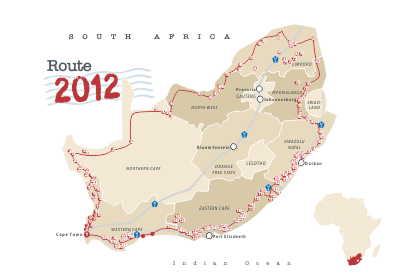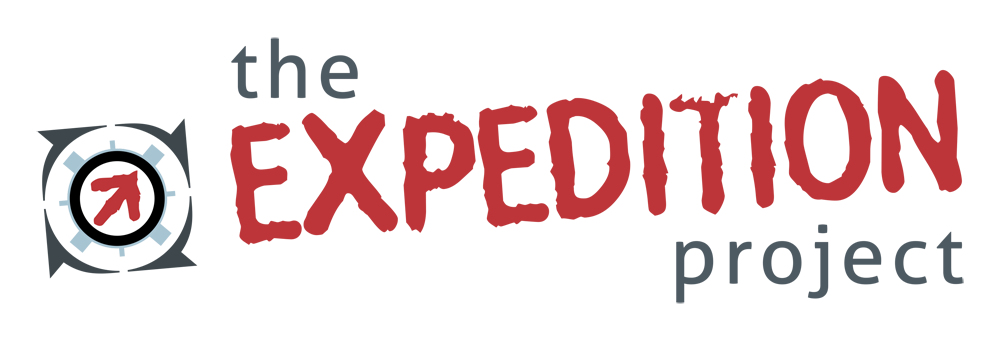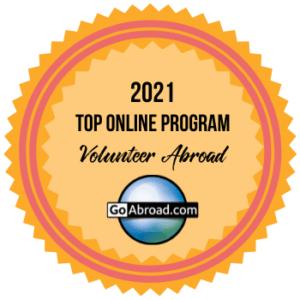The Founder of The Expedition Project examines some key decisions over not just the last 10 years, but the 20 years prior to The Expedition Project’s launch.
The below summary blog includes snippets from the original business plan, old footage and updates 10 years since launching.
1991
The best time to plant a tree was 20 years ago the second best time is today.
Chinese proverb
1991 was an important year in South Africa and in my life. In 1991, around about the same time Nelson Mandela was released from prison and South Africa entered into a new era, I started my first entrepreneurial project, and I was only 10 years old. Plastic, for example, was already 150 years old since first being developed in a mid 1800’s (although not widely used) and it did not take long in the grand scheme of things to become the most used material in the world by the 1970’s. But in 1991 no one really had the solution for the heavily present plastic problem, let alone a naïve 10 year old. 1991 was, however, the year when a lifelong inspiration started. That year, while in junior school, I joined a environmental club and one of our first outings was to a very special furniture company. This company was compressing used plastic into moulds and turning it into furniture and then covering it with padding, cushions and fabric. To me this seemed genius and fuelled some serious energy in my young mind.
Our environmental club spoke about this on our journey home from the social cause furniture warehouse and we decided that we were going to start our own recycling project at our school. Parents and students were encouraged to bring in their paper, washed alluminium tins, and glass bottles into our environmental society team who were stationed at the school parking lot before school each morning. We then sorted items, crushed tins, and put recycling into containers. This was then taken to various recycling organisations in Cape Town who then paid us for the items so they could turn it into repurposed items. In two years we had raised enough money to rebuild our school hall.
The seed had been planted and more ideas were already coming as my entrepreneurial journey began!
2001
Travel is fatal to prejudice, bigotry, and narrow-mindedness, and many of our people need it sorely on these accounts. Broad, wholesome, charitable views of men and things cannot be acquired by vegetating in one little corner of the earth all one’s lifetime.
Mark Twain
After finishing school, with not enough money to go to university, not many student loan options out there at the time, and not a solid idea of what to study, I skipped university and went travelling. I wanted to see what was out there before making any big life decisions. I was suffocated with formal education anyway. I wanted to learn by doing and seeing and being. What was meant to be a year or two of working and travelling around the world ended up being 6 years!
2007
As a responsible authority for the travel industry, the World Travel Awards is keen to encourage creativity and leadership that will lead to a sustainable future. The new “green” categories are a new and exciting way for us to do this.
Manon Han, Vice President of the World Travel Awards
By the time I returned to South Africa, around the same time Facebook started taking over the world, I knew I wanted to do something different, something not financially motivated and something I believed in. I reconnected with an inspiring zoologist and conservationist I had met years before and together we built a series of conservation based volunteer projects in the Garden Route of South Africa. Within a few years we started to win some prestigious awards – in 2008, 2009 and 2010, we were voted in the top four of Africa’s Leading Conservation Organisations by the World Travel Awards. And in 2010 we won the Welcome Award for South Africa’s most welcoming tour operator for providing consistent and outstanding service and authentic South African experiences. The idea of reinventing volunteering, making it transparent, ethical and responsible had become a success. This social cause business continues to be a fantastic success to this day.
2008
A sustainable world already exists.
Janine Benyus
Biomimicry is essentially the practice of reconnecting with, learning from and emulating nature’s genius.
The principle of Biomimicry was shared with me by Sue Swain and I was soon captivated. Very soon I was looking at the world very differently. It all seemed so obvious. Why wasn’t everyone implementing Biomimicry’s principles, way of being and innovation?
This soon led to a recycling swap shop (similar to this one here), enhanced environment education programmes and session plans for our volunteer programme and so much more.
2011
There are two primary choices in life: to accept conditions as they exist, or accept the responsibility for changing them.
Denis Waitley
By 2011 I started to get itchy feet once again. I wanted to travel. I wanted to learn more about my country. I wanted to again try and create disruption and reinvention.
With the previous experience in charities and social enterprises around the world, I outlined The Expedition Project as a social cause organisation in South Africa and as a social enterprise in the UK, rather than a charity as it was the organisation’s intention to create sustainable revenue streams to keep the organisation relevant and stable. The move to not set up another charity in the saturated charity sector was specific and intended. For one, charity auditing does not encourage movement of funds from one charity to another unless set up as a specific Foundation and as it was The Expedition Project’s intention to support other organisations with campaigns – as well as set up its own sustainable revenue streams (such as road trips and virtual volunteering – read virtual volunteering in Annexure 2) – a social enterprise model was implemented.
Financial stability and revenue flexibility was key to the decision, but at the forefront has always been integrity and ethics. I had seen firsthand, the struggles and restrictions of charities, but at the same time the motivation was not profit. I believed there was a better route. And to be honest I feel charities are still stuck in the era of 16th-century Europe when they were formally started. Until the mid-18th century, charity was mainly distributed through religious structures. As times have changed since then, and the transfer of money and donations now totalling £11 billion to charity in the UK annually (NCVO), there is a call for charities to be managed even more effectively, something that cannot be done by volunteers or staff with a lack of financial management experience. On one hand you cannot criticize a charity for putting money towards admin and management and on the other hand want your money effectively managed. It is just not possible. You can also not ask a charity to put your donation soley to projects and expect them to keep electricity on and internet running. If subsidies and government support for overhead costs are not sufficiently available then charities will always face more scrutiny than is reasonable. But at the same time charities do need to be the forerunners of ethics and transparency. However, this should not be restricted to just charities, all businesses should be held to account on these principles. Read research in Annexure 3.
As with many charities and social enterprises the motivation for the work is not financial, but to build awareness and promote support of an issue. In the case of The Expedition Project, this is, and always will be, about wildlife conservation and community building.
Another big reason to not set up just another charity was because the sector was already saturated. This doesn’t mean the world doesn’t need charities, it means there was already too much duplication out there. Too many charities were doing the same thing and worse yet they seldom work together. I didn’t want to reinvent the wheel but instead amplify what was already out there. The challenge was to connect charities together, connect sponsors to charities and connect individuals with their desire to help. Read research in Annexure 3.
The Expedition Project was established in 2011 to connect projects together, connect individuals with projects and promote positive stories about some of the lesser-known towns and initiatives in South Africa.
2012
Education is the most powerful weapon which you can use to change the world.
Nelson Mandela
In 2012 I spent 250 days on the road visiting 101 projects in 192 towns to gather information and research success stories and challenges. This was made possible with the help of over 172 local sponsors who hosted me for a night. This laid the foundations of who The Expedition Project hoped to work with, and where The Expedition Project wanted to focus its attention.

By the end of 2012, the research and experience gathered was phenomenal. At the heart of it, projects and charities were surviving unsustainably all over South Africa. My theory about framework change, system support and financial disruption was true. Community good was present everywhere, but local and national government support was not allowing good deeds to be amplified or at the very least, supported.
The key project area noticed was education, health and only then conservation. Furthermore, there was a huge divide between community and conservation projects.
In total, 16 project categories (4 main categories each with 4 sub categories) were identified as areas in need for support. This was 3 years before the 17 Sustainable Development Global Goals were presented to the world.

Read the full report below:
2013
The greatest use of life is to spend it for something that will outlast it.
William James
In 2013 I starting putting into words what had been bubbling for a while (since my introduction to Biomimicry in 2008) – the Rethink philosophy – as an alternative, or at the very least, the first step of Reduce, Reuse and Recycle. I.e. Rethink, Reduce, Reuse and Recycle. As we all know this has now expanded to Rethink, Redesign, Reduce, Reuse, Repurpose, and Recycle.
Rethink is about making consumer decisions based on a bigger picture to benefit you and everyone around you. If we change the way we buy, we will change the way we sell. By re-evaluating your consumerism, you can change the world for the better.
I pushed this phrase and concept hard, but it did not get traction until some years later – hard to say where it originated from but it certainly was not around or commonly known when I started using it. Read 2013 Rethink article here.
2019
There are some people who live in a dream world, and there are some who face reality; and then there are those who turn one into the other.
Douglas Everett
In 2019 I started working with university societies and soon over 600 students started to engage in our in-person and new online opportunities via university societies worldwide. Students participated in this international collaborative project which aimed to offer peer to peer networking as well as professional networking, online and in-person opportunities, and livestream sessions to discuss relevant conservation and community development topics.
The Expedition Project has always been about collaboration – this is how the model of support works. This means that projects support each other, as do individuals. Our Ambassador programme is aimed at those that are most passionate about some of the causes and projects we work with. Ambassadors volunteer their time to support projects and help to create more campaigns, online courses, and fundraisers.
University societies’ committees have helped develop some of our new online courses – they support with transcripts, video checks, and more. To do this, they have access to courses in-development as well as existing live courses. Members of these societies receive free and discounted rates (when free courses are not possible – as fundraising needs to go back to the projects and organisations helping to develop online courses). Our new range of courses are aimed at trying to create a community of like-minded individuals, give equal access to extramural activities and education, and open a world to students that are not able to travel to South Africa. There is no commission earned or unethical benefits gained from these collaborations.
2020
What you leave behind is not what is engraved in stone monuments, but what is woven into the lives of others.
Pericles
Covid-19 travel restrictions had a devastating impact on conservation in South Africa. Most reserves rely heavily on tourism revenue to protect wildlife and sustain ecosystems. Some even depend on a steady supply of student volunteers from abroad. We wanted to respond to this challenge. So we teamed up with South African conservation projects and international ambassadors to create more online courses and fundraisers. These raised funds for our partners through our Conservation Collaboration Fund as our response to this challenge. Available through our Project Shop, they presented opportunities to learn about African wildlife and help us to protect it.
Our growing collection of mini-courses was a doorway into the conservation industry. Collaboration allows us to present content directly from wildlife veterinarians, ecologists and game reserves. We started to package these as individual modules to make them accessible and affordable. In this way, learners can also mix-and-match their own learning programmes.
As a social enterprise, our work was still ‘for the greater good by doing good business’. Membership fees allowed us to publish quality content in collaboration with our conservation partners. Additionally, we’re able to donate profits to worthy projects on our and members’ behalf. In return, we could offer discounts on paid courses and other selected Project Shop items. Members also became eligible for special benefits like mentoring and live support.
2021
They value creating a little community which I really like and I am not 100% sure you’d get that with bigger organisations.
Jordanne, University of Nottingham
University societies became co-developers in online courses and therefore helped promote what was available. No money is given to them for marketing. Quite the opposite, The Expedition Project is helping by sponsoring talks, and society dinners, and helping to offer opportunities to society members either free or at heavily discounted prices.
Online courses have gained no profit for The Expedition Project as revenue has always been split between the highlighted projects and the South African experts, researchers, and lecturers – 50%-75% in most cases, with the remainder re-inserted back into the sophisticated online platform that hosts these opportunities to create more opportunities (as per the social enterprise model).
2022
We are now faced with the fact that tomorrow is today. We are confronted with the fierce urgency of now. In this unfolding conundrum of life and history, there “is” such a thing as being too late. This is no time for apathy or complacency. This is a time for vigorous and positive action
Martin Luther King Jr.
Since 2012 The Expedition Project has run annual research expeditions, when possible, and hosts awareness campaigns to promote some of the most inspiring projects across South Africa.
Between 2012-2022 only projects that qualified as ethical and visited by either myself, or one of my local contacts, would be added to The Expedition Project network. Many projects either were not added to the network or were removed due to not meeting our criteria.
It is imperative that social-impact organisations adhere to the highest codes of conduct and that individuals and campaigns raise awareness when there is a lack of transparency over governance or compliance. I have therefore drafted this summary to provide greater insight into the motivations and collaborations that we support.
The Expedition Project is a small, well-meaning, efficiently run social enterprise, that hopes to continue to build robust and equitable collaborations between our partners and create fantastic opportunities for university students across, South Africa, the UK and beyond.
It would be a lie to say I do not want The Expedition Project to create higher levels of revenue, it does not create nearly enough to be sustainable yet, but with more revenue does not mean that social enterprise model will change. More revenue will mean more positive impact to the projects and issues important to not just me but all the like-minded individuals that understand the mission at hand.
I find myself reflecting back to the furniture company I visited in 1991. This company seems even more genius now. Not only were they fulfilling a need but they were doing it by solving a problem. This was a company, not a charity. This was not even a social enterprise. They did not need labels. Everyone was already winning.
by Roger Wynne-Dyke
Annexure
Annexure 1 – Roger Wynne-Dyke
Roger Wynne-Dyke has experience of working for and with charities and social causes in and out of South Africa since 1991 and more formerly and professionally since 2001.
Roger currently runs a youth development charity based in London, and The Expedition Project out of both the UK and South Africa. Read more.
Annexure 2 – Virtual Volunteering
I actually started the virtual volunteering idea way before the online technology made it worthwhile. Back in 2009, before Instagram, Twitter and other social interaction platforms, I wanted to engage volunteers from all over the world without travel. At the time it did not work. The concept only started working in 2019/2020.
Annexure 3 – Sector change
A call for a new model for the charity sector – enter socially active and transparent businesses (Ethical Business) or social cause businesses (Social Enterprises / B-Corps):
Charitable giving (UK)
- The global philanthropy market is estimated to be £182 billion.
- People gave £11.3 billion to charity in the UK in 2020, up from £10.6 billion in 2019.
- 62% of people in the UK gave to charity via donation or sponsorship in 2020.
- The average monthly donation in the UK in 2021 was £49.
What are the problems facing the sector?
- Ineffective amounts of time & money spent on fundraising applications
- Chronic short term thinking throughout the voluntary sector
- Endemic culture or risk aversion
- Acceptance of the status quo
- Disastrously high staff turnover
- Escalating cost of donor acquisition
- Decline of trust & confidence
- Growing public distain for fundraisers and fundraising
- Fundraising organisations haemorrhage donors, who see little reason to stay giving to charities for the long term.
Governance and transparency
Charity Commission in moral and financial crisis
The third sector needs tighter regulation
Select Committee calls for evidence for the sustainability of the charity sector
Growing need and reputation management
Worrying decline in public donations that will have dire consequences for charities
Public scrutiny and scepticism of the sector
Charity registrations increase watering down efficiency and effectiveness & saturating sector




Leave a Reply
You must be logged in to post a comment.